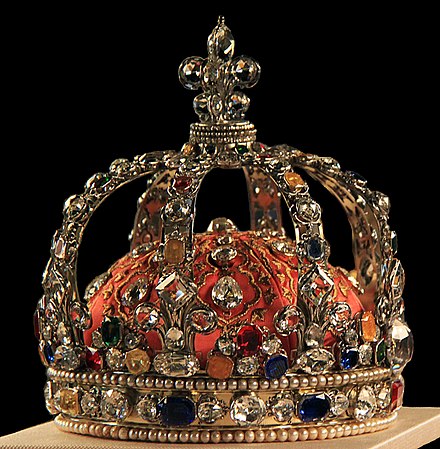409. One to Rule Them All: Jean Bodin
The polymath Jean Bodin produces a pioneering theory of political sovereignty along the way to defending the absolute power of the French king.
Themes:
• M.J. Tooley (trans.), Jean Bodin: Six Books of the Commonwealth (Oxford: 1955).
---
• H. Baudrillart, Bodin et son temps: tableau des théories politiques et des idées économiques au seizième siècle (New York: 1969).
• A. Blair, The Theater of Nature: Jean Bodin and Renaissance Science (Princeton: 1997).
• H. Denzer (ed.), Jean Bodin (Munich: 1973).
• D. Engster, “Jean Bodin, Scepticism and Absolute Sovereignty,” History of Political Thought 17 (1996), 469-99.
• J.H. Franklin, Jean Bodin and the Sixteenth-Century Revolution in the Methodology of Law and History (London: 1963).
• J.H. Franklin, Jean Bodin (Aldershot: 2006).
• J.H. Franklin, Jean Bodin and the Rise of Absolutist Theory (Cambridge: 2009).
• D. Lee, The Right of Sovereignty: Jean Bodin on the Sovereign State (Oxford: 2021).
• H.A. Lloyd, Jean Bodin: “This Pre-Eminent Man of France,” an Intellectual Biography (Oxford: 2017).
• K. McRae, “Ramist Tendencies in the Thought of Jean Bodin,” Journal of the History of Ideas 16 (1955).
• D.P. O’Brien, “Bodin’s Analysis of Inflation,” History of Political Economy 32 (2000), 267-92.
• G.-A. Pérouse et al. (eds), L’oeuvre de Jean Bodin, Actes du colloque tenu à Lyon à l’occasion du quatrième centenaire de sa mort (Paris: 2004).







Comments
Bodin
Just when we thought it safe to come out after the notorious"William of Orange/fruit salad" joke, we get the "udders".
The Substance of Sovereignty
Hi Peter, cracking episode as usual.
Here is my attempt to present my thoughts in brief:
1. I do not think Bodin would not consider the separation of powers to be conceptually incoherent, though he might think it was practically a bad idea. Sovereignty is invested in a single source even in systems with a separation of powers. As you say, the executive can be divided from the legislative, but all are subordinate to the sovereign, which could in theory change their relationship to each other (and indeed do anything else).
2. There have been many philosophers of democracy since then who have tried to defend the possibility of the subordination of sovereignty to law. Many think this is incoherent, including Bodin, Hobbes, and Karl Schmitt.
3. Speaking of Hobbes, he is very specific about this. A democracy can be sovereign, sovereignty can be invested not in a person but in an assembly. However, that assembly is not subject to the law but the maker of it, and that is sovereignty.
4. I think Bodin is really arguing against the sharing of sovereignty between sources rather than the division of powers. In previous centuries, the buck stopped at different, competing authorities. The Church, local privileges, and the crown all claimed that they were the sovereign on various issues. This remained an important argument for the power of the parlement vs the crown, and is perhaps best embodied in the 'mixed monarchy' of the Holy Roman Empire. He sees that as incoherent and undesirable. (As I understand it, the separation of powers is really more of an 18th century debate with Montesquieu and his gang.)
5. Given we're steaming ahead toward the 17th century and the great feast of sovereignty theory it provides, for which Bodin is but a tasty starter, I reckon this is something worth exploring and pinning down at this stage? Well, you are the sovereign here and cannot share power, those are just my thoughts.
6. Tim Stanton is probably the expert on this particular knotty area, even more than Quentin Skinner, and I know you'd find him a very engaging guest. I can see if I can put you in touch if you like?
In reply to The Substance of Sovereignty by Isaac of York
Sovereignty
Thanks for that helpful response. I think I agree with all that: clearly he thinks that the sovereign can have other bodies exercise power on his behalf, so devolution and "separation of powers" is possible in that sense. But you can't have more than one source of power where the buck stops. I guess you could argue that the US (which I used as an example in the episode) is, from this point of view, actually not a case of separated power, because all branches of govt are representing the will of the people, so the people are the sovereign. At least in theory - in practice the ability of the people to control the judiciary, in particular, is very indirect and so rather attenuated. But still.
Stanton is a good idea but I think it might be a bit early to get him involved: he's someone I should interview when I get to 17th c English philosophy, probably, which won't be for some time yet since I will finish the Reformation series first and then probably do 17-18th c France and Low Countries.
Modern philosophy
Dear Peter, With Bodin I felt we have finally reached the dawn of Modern Philosophy. I have stayed the course through Platonism, Neo-Platonism and many of your Renaissance podcasts - with side trips to Arabic - Jewish philosophy - to find firmer footing on the Moderns. I sense the Platonists are in your comfort zone, so wanted to spur you on. Pole vaulting over the post-Enlightenment of the late 18th and 19th centuries (as much as we all love Kant and depise Hegel) when might you reach Husserl, Heidegger, Wittgenstein, Carnap, Sartre, Adorno, Quine, Murdoch, Rawls, Arendt, Searle and Sen? i wish to live so long and learn how giraffes can illuminate the Tractatus Logico-Philosophicus.
In reply to Modern philosophy by Michael Stanle…
The moderns
Thanks for the encouragement! It's a daunting prospect I have to confess, but I am really looking forward to the challenge of tackling the 17th and 18th centuries. Which will take me quite a while so I am not thinking past that yet!
Add new comment